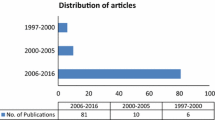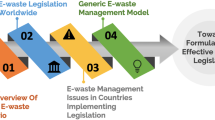Abstract
With the rapid development of the timber industry, illegal logging of timber and its trade have become an important issue for world sustainable development. Many governmental and private sectors have taken measures to ensure the legality of wood, and wood legality verification is becoming more and more common. Chinese wood processing industries are mainly centralized in the region of Jiangsu and Zhejiang. In this paper, a questionnaire survey is used to investigate the status of legality verification of wood processing enterprises in Jiangsu and Zhejiang. The results show that applying for timber legality verification is conducive to the increase in enterprise benefits, but due to different levels of management and technology application rate, enterprises have deviations in their understanding of different legality certification systems. High certification costs and insufficient awareness of legality verification have become the main obstacles to applying for timber legality verification of wood processing enterprises in Jiangsu and Zhejiang. Based on this conclusion, this paper suggests some policies to promote the legality verification of Chinese wood processing enterprises.


Similar content being viewed by others
Availability of data and material
The datasets used and/or analyzed during the current study are available from the corresponding author on reasonable request.
Code availability
Not applicable.
References
Acheampong E, Maryudi A (2020) Avoiding legality: timber producers’ strategies and motivations under FLEGT in Ghana and Indonesia. For Policy Econ 111:102047
Bai RS, Li HX (2019) Research on impact assessment of CFCC on sustainable management of forest farm. Ecol Econ 35(10):160–165 (in Chinese with English abstract)
Bernstein S, Cashore B (2012) Complex global governance and domestic policies: four pathways of Influence. Int Affairs 88(3):585–604
Brack D (2013) Combating illegal logging: interaction with WTO rules. Chatham House, London
Brack D, Buckrell J (2010) Controlling illegal logging: consumer-country measures. Chatham House, London
Cao XW (2018) Probe into the Training mode of professional talents of wood processing in secondary vocational schools. Sci Popul (Science Education) 1:120 (in Chinese)
Cashore B, Stone MW (2012) Can legality verification rescue global forest governance? Analysing the potential of public and private policy intersection to ameliorate forest challenges in Southeast Asia. For Policy Econ 18:13–22
Cashore B, Stone MW (2014) Does California need Delaware? Explaining Indonesian, Chinese, and United States support for legality compliance of internationally traded products. Regul Gov 8(1):49–73
Chen J, Innes JL, Kozak RA (2011) An exploratory assessment of the attitudes of Chinese wood products manufacturers towards forest certification. J Environ Manag 92(11):2984–2992
China Forestry Industry (2016) EU Timber Act and its impact. China For Ind 3:10 (in Chinese)
Davenport DS (2005) An alternative explanation for the failure of the UNCED forest negotiations. Glob Environ Polit 5(1):105–130
European Commission (EC) (2003) Forest law enforcement, governance and trade (FLEGT)—proposal for an EU action plan (COM(2003) 251). European Commission, Brussels
European parliament (2010) Regulation (EU) NO 995/2010 of the European parliament and of the council. Off J Eur Union 50:23–46
Espach R (2006) When is sustainable forestry sustainable? The forest stewardship council in Argentina and Brazil. Glob Environ Polit 6(2):55–84
FAO (2017) Forest certification. In: Sustainable forestry management (SFM) Toolbox. http://www.fao.org/sustainable-forest-management/toolbox/modules/forest-certification/in-more-depth/en/. Accessed 3 Feb 2020
FERN (2018) Forest watch special-FLEGT VPA Update D 2018. https://www.fern.org/fileadmin/uploads/fern/Documents/VPA-Update-December-2018.pdf. Accessed 3 Feb 2020
Greenpeace (2008) Responsible sourcing: solutions for corporate social responsibility and forest protection. Greenpeace, Beijing (in Chinese)
Hoare A (2015) Tackling illegal logging and the related trade. What progress and where next? Chatham House, London
Leslie AD (2004) The impacts and mechanics of certification. Int For Rev 6(1):30–39
Lesniewska F, McDermott CL (2014) FLEGT VPAs: laying a pathway to sustainability via legality lessons from Ghana and Indonesia. For Policy Econ 48:16–23
Li JQ, Chen SZ (2015) Empirical analysis on the practical feasibility of timber legality verification work in China. Open J Polit Sci 5:167–169
Liu Y, Zhi L (2012) Discuss on adoption of forest certification for famers under the background of collective forest tenure reform—analysis based on the survey of 492 famers in Yunnan. For Econ 2:33–36 (in Chinese with English abstract)
Luo DW, Zhang ZG, Chen Y, Gu SJ (2017) Research on the identification and consumption tendency of green wood processing products. China For Econ 2:26–31 (in Chinese with English abstract)
Ma S, Tian MH, Li RD, Wei T, Zhang YZ (2020) Evaluation and enlightenment of strategies for responding to timber legality requirements based on the perspective of Chinese forest products export enterprises. World For Res 33(04):62–67 (in Chinese with English abstract)
Maryudi A (2016) Choosing timber legality verification as a policy instrument to combat illegal logging in Indonesia. For Policy Econ 68:99–104
Miao DL, Tian H, Cheng BD (2014) A study of timber legality verification and its influence on Chinese woody forest product trade. World For Res 27:61–65 (in Chinese with English abstract)
Nathan I, Hansen CP, Cashore B (2014) Timber legality verification in practice: prospects for support and institutionalization. For Policy Econ 48:1–5
Nathan I, Chen J, Hansen CP, Xu B, Li Y (2018) Facing the complexities of the global timber trade regime: how do Chinese wood enterprises respond to international legality verification requirements, and what are the implications for regime effectiveness? For Policy Econ 92:169–180
Overdevest C, Zeitlin J (2014) Constructing a transnational timber legality assurance regime: architecture, accomplishment, challenges. For Policy Econ 48:6–15
Peng Y, Tian MH, Wang XX (2012) Effect of “EU Diligence Regulation” on Chinese wooden furniture trade and its countermeasures. China For Prod Ind 39:12–16 (in Chinese with English abstract)
Prestemon JP (2015) The impacts of the Lacey Act Amendment of 2008 on US hardwood lumber and hardwood plywood imports. For Policy Econ 50:31–44
Proforest (2011) An overview of legality verification systems Briefing note February 2011. https://www.docin.com/p-468984754.html. Accessed 3 Feb 2020
Qian J, Yang HQ, Nie Y (2018) Research process on illegal logging and related trade—based on the literature achievements of 1998–2017. For Econ 40(12):3–9 (in Chinese with English abstract)
Ramcilovic-Suominen S, Gritten D, Saastamoinen O (2010) Concept of livelihoods in the FLEGT voluntary partnership agreement and the expected impacts on the livelihood of forest communities in Ghana. Int For Rev 12(4):361–369
Rayner J, Humphreys D, Welch FP, Prabhu R, Verkooijen P (2010) Introduction. In: Rayner J, Buck A, Katila P (eds) Embracing complexity: meeting the challenges of international forest governance. International Union of Forest Research Organizations, Vienna, pp 9–18
Stevens J, Ahmad M, Ruddell S (1998) Forest products certification: a survey of manufacturers. For Prod J 48(6):43–48
USDA (2013) Lacey Act. https://www.aphis.usda.gov/aphis/ourfocus/planthealth/import-information/SA_Lacey_Act. Accessed 3 Feb 2020
Vidal N, Kozak R, Cohen D (2005) Chain of custody certification: an assessment of the North American solid wood sector. For Policy Econ 7:345–355
Wang JX (2013) China forest certification standard framework. Certif Technol 1:39–40 (in Chinese)
Wang HY, Huang HB (2019) Research on the application of high and new technology in wood processing. Sci Technol Innov 32:138–139 (in Chinese)
Wang QW, Chen JM, Qian J (2015) Building the supervised structure of illegal logging and trading of wood. For Econ 37(11):44–47 (in Chinese with English abstract)
Xu R, Wang ZS, Lei B, Ye FR (2018) Investigation and analysis of sustainable development of wood processing enterprises—based on Jiangsu and Zhejiang provinces. China For Econ 3:34–38 (in Chinese with English abstract)
Zeng W, Zeng YC, Li LM (2016) Impacts of wood legality trade requirement on Chinese wood product enterprises and its countermeasures—investigations in Jiangsu, Zhejiang and Shandong provinces. Issues For Econ 36(6):525–529 (in Chinese with English abstract)
Zeitlin J, Overdevest C (2020) Experimentalist interactions: joining up the transnational timber legality regime. Regul Gov. https://doi.org/10.1111/rego.12350
Acknowledgements
The paper is supported by the Postgraduate Research & Practice Innovation Program of Jiangsu Province (Grant No. KYCX20_2608). The authors would also like to thank the financial support from Jiangsu Education Administration Bureau.
Author information
Authors and Affiliations
Corresponding author
Ethics declarations
Conflictsof interest/Competing interests
The author(s) declare(s) that there is no conflict of interest..
Additional information
Publisher’s Note
Springer Nature remains neutral with regard to jurisdictional claims in published maps and institutional affiliations.
Rights and permissions
About this article
Cite this article
Guan, Z., Chen, X. The status of legality verification of Chinese wood processing enterprises: based on a survey in Jiangsu and Zhejiang. Eur. J. Wood Prod. 80, 247–253 (2022). https://doi.org/10.1007/s00107-021-01731-0
Received:
Accepted:
Published:
Issue Date:
DOI: https://doi.org/10.1007/s00107-021-01731-0




